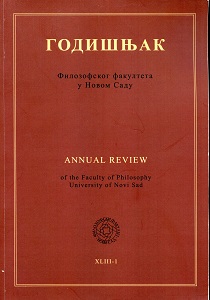THE VARIATION IN NON-FINITE COMPLEMENTS IN SERBIAN: EMPIRICAL EVIDENCE AT AN INTRA-SPEAKER LEVEL
THE VARIATION IN NON-FINITE COMPLEMENTS IN SERBIAN: EMPIRICAL EVIDENCE AT AN INTRA-SPEAKER LEVEL
Author(s): Predrag Kovačević, Tanja Milićev, Ivana Đurić PaunovićSubject(s): Language studies, Language and Literature Studies, South Slavic Languages
Published by: Филозофски факултет, Универзитет у Новом Саду
Keywords: non-finite complements; da+present; infinitive; syntactic variation; a translation study
Summary/Abstract: The paper investigates the nature of syntactic variation in non-finite complements of modal verbs in Serbian. Specifically, we examine what factors may underlie the intra-speaker variation in the choice of infinitive over da+present, and how these differences can be represented structurally. The empirical data from a restricted corpus study confirm the observation from the literature that infinitive is often used for stylistic reasons and in impersonal contexts. What we have also found is that for the speaker infinitive is preferred with abstract or non-referential subjects, with stative complements and in the context of epistemic rather than deontic modals. We hypothesize that all the grammatical factors converge around the pivotal role of the subject in the two constructions. An account that predicts enough structural similarity between da+present and infinitive to allow virtual interchangeability, while postulating enough difference in terms of the role of the subject to accommodate the observed differences could, thus, be a good candidate to explain the observed phenomena.
Journal: Годишњак Филозофског факултета у Новом Саду
- Issue Year: 43/2018
- Issue No: 1
- Page Range: 437-451
- Page Count: 15
- Language: English

